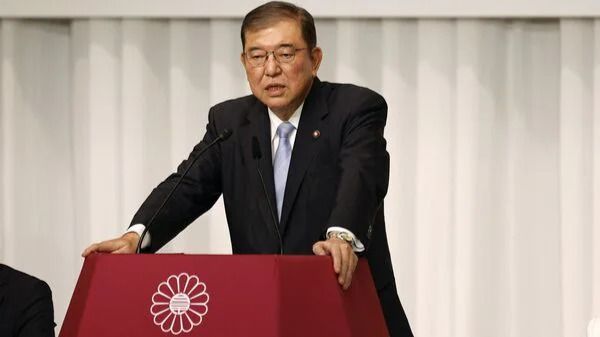Scapegoat. Sometimes less is more. The Liberal Democratic Party of Japan certainly hopes that will be the case. New Prime Minister Shigeru Ishiba’s bid for early elections next week could cost the LDP its absolute majority in the lower house. But the outcome should allow the ruling party to remain in power and the Bank of Japan to continue raising interest rates.
Local media surveys show that the LDP may not reach the 233 seats it needs to obtain an absolute majority in the 465-seat lower house in the October 27 elections. The likely electoral defeat raises the question of why Ishiba, who become Prime Minister less than a month after winning the elections for one party, he has now gone to the polls.
The simplest answer is that the veteran politician wanted to minimize losses by catching the opposition off guard. Waiting one more year, as the law of the land allowed, could have allowed rival parties to gather more ammunition to fire on the scandal-plagued LDP.
However, the prime minister and his party may take an electoral beating but are likely to remain in power. That’s the best Bank of Japan Governor Kazuo Ueda can hope for as he continues to reverse a decade of ultra-low interest rates.
The Constitutional Democratic Party of Japan, the LDP’s biggest rival in the lower house, has called for changing the Bank of Japan’s inflation target from 2% to “above 0%,” opening the door to rate increases even as the inflation falls well below recent levels. In violation of the BOJ’s independence, the opposition also wants to create a target for wage growth above inflation, which will be set jointly by the government and the central bank.
It is true that Ishiba shocked markets on October 2 by suggesting that another rate hike was not yet justified, but he quickly backtracked and expressed full support for the right of the central bank to set monetary policy. Still, losing an overall majority could weaken Ishiba’s control over his own party just weeks after his elevation to prime minister ended the error-prone Fumio Kishida’s tenure.
That kind of uncertainty doesn’t help Ueda. The BOJ chief has repeatedly said he needs to see inflation stay above the central bank’s 2% target for some time before raising short-term rates from the current level of 0.25%. In the long term, a diminished PLD may mean that less is less for both Ishiba and Ueda.
Context news
Japan’s Liberal Democratic Party could lose its absolute majority in the lower house after a snap election on October 27, Reuters reported citing local media polls. The Komeito Party, a more moderate ally of the LDP, could also lose seats. Japan’s Constitutional Democratic Party, the second-largest bloc in the lower house, has called for changing the Bank of Japan’s inflation target from 2% to “above 0%,” as well as creating a growth target of real wages set jointly. by the government and the central bank.
Disclaimer:
The information contained in this post is for general information purposes only. We make no representations or warranties of any kind, express or implied, about the completeness, accuracy, reliability, suitability or availability with respect to the website or the information, products, services, or related graphics contained on the post for any purpose.
We respect the intellectual property rights of content creators. If you are the owner of any material featured on our website and have concerns about its use, please contact us. We are committed to addressing any copyright issues promptly and will remove any material within 2 days of receiving a request from the rightful owner.

